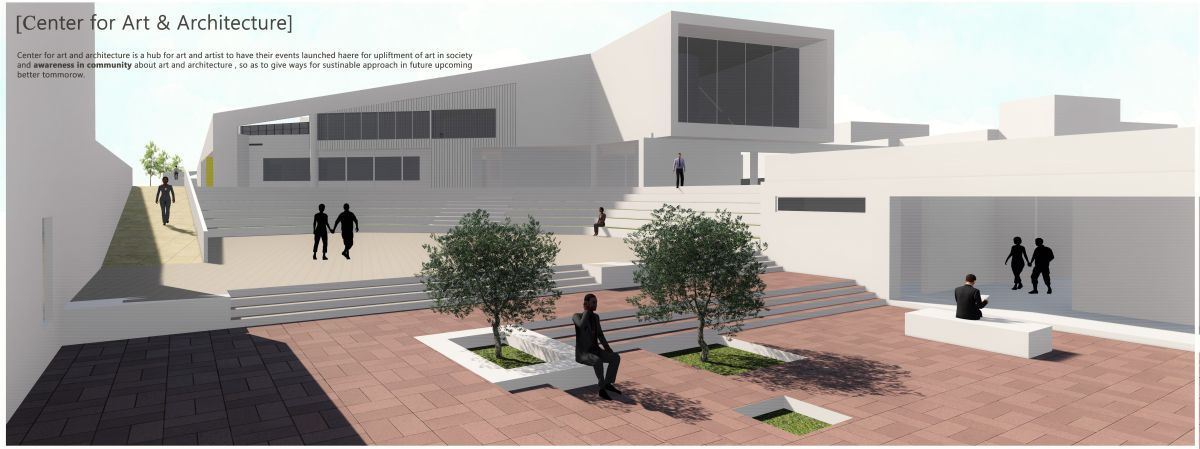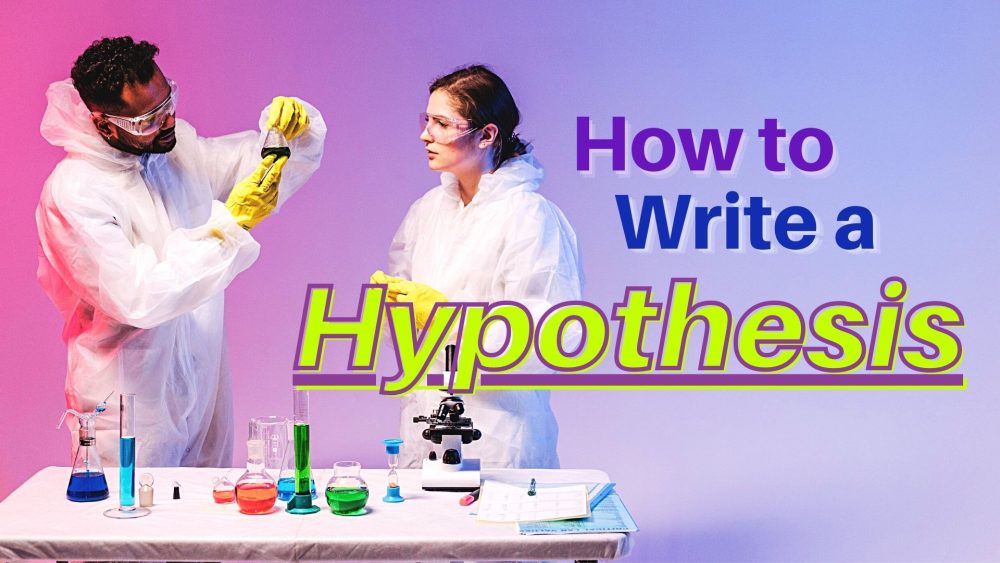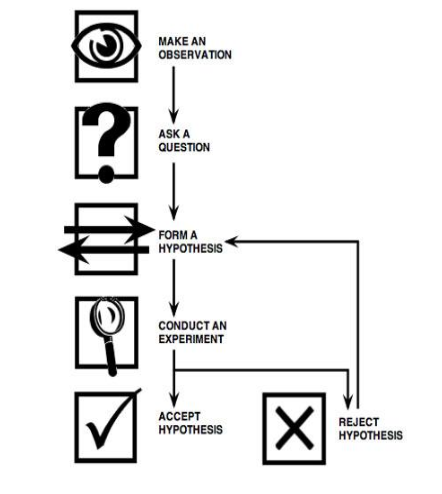#Mission2.0 is here to disrupt the mundane. Are you? Join Now
- BIM Professional Course for Architects
- Master Computational Design Course
- BIM Professional Course For Civil Engineers
- Hire From Us


Request a callback

- Architecture & Construction
- Computational Design
- Company News
- Expert Talks
Chat With Us
Architecture Thesis Projects: A Comprehensive List of 30 Topics to Pick From (Updated 2024)

Neha Sharma
13 min read
March 18, 2024

Table of Contents
Architecture Thesis: A culmination of all those years of intense training, sleepless nights, countless submissions and unforgettable memories. The grand finale!
It is a real test to showcase all the skills you’ve gained over the years in a single project. Naturally, choosing the right topic from an ocean of architecture thesis topics is one of the biggest challenges you can face as a final year student, as the topic itself may define the trajectory of your thesis!
To ease your conflicted mind, we have curated a comprehensive list of popular architecture thesis projects you might want to explore in your final year, along with links to relevant theses across the internet for your ready reference.
Go on, have a look! What sparks your interest?
Housing/ Residential Projects

1. Affordable Housing
“Housing for all” is a major goal developing countries are striving to achieve. Not everyone has the resources to own a house or even rent one out. Conscious and well-planned housing design can turn cities into places where owning a house is not merely a dream. And architects can play a pivotal role in achieving this noble goal.
2. Gated Communities
With the city centres choking with pollution, traffic congestion and over-population, many people are now moving to the suburbs in closed, secure and private gated communities. These colonies circumference almost every major city now, with more emerging as you read. A gated community design could be an interesting (though slightly controversial) architecture thesis topic to explore residential neighbourhood planning.
3. Modular/ Disaster Relief/ Emergency Shelters
Land and resources are limited but the demand for them only keeps increasing giving rise to environmental hazards like deforestation, pollution and depletion of natural assets. In a rapidly changing, calamity-prone world, the design of modular, mobile, disaster relief shelters is the need of the hour!
4. Slum Redevelopment
Urban informality may be a fascinating, complex issue to tackle for your architecture thesis projects. Many people have varied opinions on the dense, informal urban developments popularly known as ‘slums’ , but few are willing to tackle the difficult issue from top to bottom (or bottom up!). Are you one of the few?
Institutional Projects

5. Educational and Skill-Training Institutions
Schools play an important role in shaping a person and are key in bringing up generations of bright individuals. Educational and skill-training institutions have vast options, ranging from kindergartens to higher-education institutes; schools of dance to special-needs institutes ! Ready to shape minds?
6. Rehabilitation and Wellness Institutions
A sound mind and sound body are key to a happy life!
Unfortunately, sometimes individuals have to be institutionalised to get their health back on track. Rehabilitation centres and centres for people with depression or trauma aim at people’s mental wellness, while public gyms and civic sports centres aim at people’s physical wellness. If healing architecture and landscape is something you like, this could be the best architecture thesis topic for you!
7. Research Institutions
Progress in science, technology and humanities improves our way of living and ensures our well-being. The Sheldon Coopers among us wouldn’t be happy to see any fewer research centres and laboratories than there are!
Public Infrastructure Projects

8. Hospitals
Healthcare services are undoubtedly the most important services any region needs. The pandemic has made us understand how under-equipped even the best hospitals can be and so there is an even bigger reason for every hospital, be it multi-speciality/ speciality , maternity, special needs, public or private , to be as well designed as possible. This, more than ever, is the need of the hour and can make for a pressing architecture thesis project.
9. Transit Hubs
Airports , Bus Terminals , Railway Stations , Inland Waterways, Seaports.
Do you love to travel? Have you ever waited for a train and imagined how much better that railway station could be? Then what are you waiting for? Be the change!
10. Sports Stadia
Remember that first stadium experience of watching a cricket or football match? The energy of the crowd, the adrenaline rush! Most group sports stadia ( Cricket , Football , Hockey, Baseball, etc) and sports cities require meticulous study before designing, making a very suitable architecture thesis project for students.
11. Urban/Street Redevelopment
How often do we walk the streets of our cities and almost die because a bike passed within inches of us? Street redevelopment projects catering to pedestrianisation are proven to improve the lives of millions and are rapidly gaining urgency in the urban design domain.
These projects often require extensive site study. Not sure what all to cover in your site analysis? Read - Site Analysis Categories You Need to Cover For Your Architecture Thesis Project .
12. Waterfront Development
Rivers are considered sacred and life-giving across the world. The pitiful conditions of water bodies today have led urban designers to take up River/Canal-front Development Projects which aim at minimising water pollution, a smooth transition from land to water, and ultimately encouraging visitors for leisure and fun activities.
13. Public Parks and Plazas
Parks are the lungs of the concrete jungles many of us live in. After a day of intense work, all we need is some greenery and fresh air; or to grab a beer at that corner cafe in the city square! The design of public parks, plazas and playgrounds could be the best architecture thesis topic for an urban/landscape enthusiast.
14. Social Infrastructure
A robust, well-functioning society accommodates and facilitates the wellness of all its citizens and living beings. Infrastructure like orphanages , nursing homes , animal shelters , night shelters , daycare centres, banks, prisons , juvenile schools, community development centres , and many more tend to those social needs of the society which cannot be overlooked. Inclined towards public welfare? Look no further!
Socio-Cultural Projects

15. Community and Convention Centres
Humans are social animals. Now and then, we crave a meet-and-greet. Community and Convention Centres cater to this very need, and exploring the design angles for human interaction may be something worthy of your architecture thesis project. Be ready for competition though, this is one of the most popular architecture thesis topics students undertake!
16. Museums and Libraries
The culture-lovers among us would understand the value of a good museum or library and appreciate a well-designed one. Be it a museum of arts and crafts, culture, architecture , history or science, if the give and take of knowledge through some entertainment and delight (infotainment) is something you see yourself doing, then this could be the best architecture thesis topic for you.
17. Memorials
Memorials are the physical manifestations of the struggles endured, victories earned and life-changing events in history. They remind us to never forget the past, hoping for a better future at the same time, making memorial design both a fascinating yet weighted exercise.
18. Places of Worship/ Spiritual Centres
One cannot separate a human from their faith. Having a place to worship or connect with one’s spiritual self is as important to a human as going to school or a cinema hall. Places of worship like temples, churches, masjids, gurudwaras, monasteries , etcetera; and spiritual or meditation centres serve as places for gathering and become important landmarks in a settlement.
.png?width=767&height=168&name=MCD%20B%20(Course%20Banner).png)
Conservation and Heritage Projects

19. Conservation of Heritage Structures
Conservation of the priceless built heritage like palaces, monuments, places of worship, ancient settlements, etc has always been on the agenda of organisations like UNESCO and the Archeological Survey of India. If historical significance gets your heart rate up, hi history nerd! Help in conserving our heritage structures !
20. Adaptive Reuse of Heritage Buildings
History nerd, if you’re still here, here’s another architecture thesis topic for you. Some heritage can be conserved to attract tourists and some that are too out-of-order could be modified and reused for a different purpose, generating economy. Converting royal palaces into heritage hotels, a king’s court into an emergency ward for covid patients or factories into community spaces, adaptive reuse of the built form requires fine skill, respect for heritage, and an active imagination!
Offices/ Corporate Projects

21. Government Buildings
Workspaces for all government officials are mandatory for smooth administration. The scale of government buildings is diverse, from the Central Vista Redevelopment Project (*ahem*) to a district-sessions court. Some common categories are high courts, government-owned banks, secretariat and corporation buildings , income-tax offices, assembly and gathering centres , media offices and so on.
Sounds boring? Don’t be so sure. What originally sounds typical is where there is maximum potential to surprise your critics!
22. Corporate Office Towers
We all have seen or at least talked about the famous corporate jungles of our towns. They not only serve as important landmarks but help in increasing the economic value of a region (Very SEZ-y!). If you wanna tame the jungle, you could explore corporate office-building design for your architecture thesis topic.
23. Co-working and Remote-working Spaces
A popular trend before COVID was sharing workspaces, which now have the potential to be thought of as remote-working spaces! Rethinking the design of co-working spaces is very relevant to the times and has great scope for innovation.
With the times we live in, this could be the best architecture thesis topic!
Entertainment and Commercial Projects

24. Theatres and Auditoria
Who doesn’t like good showtime with family and friends? Theatres, auditoria and performance centres are the core of spaces showcasing and witnessing talent, and fall under another typology which has the potential to be reworked post-pandemic. The design of such entertainment stations can test the knowledge of large-span structures without losing a strong grip on creativity and functionality.
25. Multiplexes and Malls
Malls and multiplexes are very popular among the masses as they possess multiple brands of shopping, entertainment and food centres. Whether or not you agree with the mall typology, more keep coming up in growing towns every year. So why not study how they work and improve the concept for your architecture thesis project? The consumerist urbania will thank you!
26. Marketplaces
Shopping for groceries and essential commodities is a frequent need, and most people head to a single marketplace for all their essential goods shopping. A place with a high frequency of movement requires meticulous and thorough design, but can also be one of the most fun challenges to take up! Think farmer markets, community-owned produce markets, mandis, harbour fish markets, and flea markets, the possibilities are endless!
27. Mixed-Use Hubs
Taking your design challenge up a notch is by taking up a mixed-use hub . This is a high-density area that caters to more than one function and has mega economic value. It could be a combination of residential, commercial, institutional, or hospitality, commercial and public space, or much more. This concept is taken to another level by bringing transit hubs into the fray with transit-oriented development!
28. Film, Photo and Animation Studios
The use of digital media has increased multifold in the past couple of decades. A lot of creatives express themselves through digital content, increasing the need for more film , photo, animation and integrated studios . Since these functions can be highly specialised, there is a lot of potential to do impressive research for your architecture thesis project!
Hospitality and Tourism Projects

29. Eco-Tourism Resorts and Visiting Centres
Imagine spending a weekend at a secluded place, close to nature, with all the facilities you need to relax and just de-stress! Ecological resorts and tourist visiting centres aim to cause as little damage to the environment as possible. Keen on environmental sustainability, eco-tourism resorts should be encouraged in the tourism and hospitality industry and make for very relevant architecture thesis topics.
Landscape architecture enthusiasts, where are you all at?
30. Backpacker Lodging/ Youth Hostels
While the question of travel arises, not everyone can afford finely kempt hotels or resorts to lodge at. The youth may opt for backpacking trips to save money as well as to have an interesting experience! Backpacking/ youth hostels like Zostel and Nomads World are buzzing for their affordability, convenience and prospects of networking with like-minded people. If this is your jam, consider creating innovative spaces for it!
Futuristic/ Sci-fi/ Conceptual Projects

How about a settlement on Mars? Or a concert hall in the air? A transit hub of 2050? A forest within the city? Perhaps a residential colony on the water!
Such futuristic or conceptual architecture thesis topics are all the more enthralling as they might not have any precedents. They stretch a creative brain to its limit, and in the process may transform into a brilliant idea. Challenging conventions, thinking out of the box and taking up a futuristic architecture thesis project could be your achievement (both in design and in convincing the faculty) as a young designer!
Having read about some common architecture thesis topics, it is important to know that you must not be limited to the above list. Your architecture thesis is your own brainchild, and it does not need to conform or even fit within a category.
A great architecture thesis is also a key ingredient in creating a kickass architecture portfolio ! So give your all. Who knows, you may even end up receiving an award for your architecture thesis !
Hoping you found the inspiration you were looking for!
Need more guidance with your architecture thesis project? Head straight to our A-Z Architecture Thesis Guide !
.png?width=704&height=224&name=MCD%20B%20(Course%20Banner).png)
Learn how computational design can help your career
Speak with an expert now, related topics.
- Architecture and Construction
- design careers
- future tech
Related articles
.png)
A Definitive Guide on How to Choose Architecture Thesis Topic

Sanjana Aggarwal
May 12, 2023
Creative Jobs for Architects That Are Shaping the Future of the AECO Industry

Pragya Sharma
January 27, 2023

Site Analysis Categories You Need to Cover For Your Architecture Thesis Project
May 17, 2022
How To Design The Best Architecture Portfolio in 2024?

Saumya Verma
November 16, 2022
12 min read

Ready to skyrocket your career?
Your next chapter in AEC begins with Novatr!
As you would have gathered, we are here to help you take the industry by storm with advanced, tech-first skills.

Dare to Disrupt.
Join thousands of people who organise work and life with Novatr.
Join our newsletter
We’ll send you a nice letter once per week. No spam.
- Become a Mentor
- Careers at Novatr
- Events & Webinars
- Privacy Policy
- Terms of Use
©2023 Novatr Network Pvt. Ltd.
All Rights Reserved
What Is A Research (Scientific) Hypothesis? A plain-language explainer + examples
By: Derek Jansen (MBA) | Reviewed By: Dr Eunice Rautenbach | June 2020
If you’re new to the world of research, or it’s your first time writing a dissertation or thesis, you’re probably noticing that the words “research hypothesis” and “scientific hypothesis” are used quite a bit, and you’re wondering what they mean in a research context .
“Hypothesis” is one of those words that people use loosely, thinking they understand what it means. However, it has a very specific meaning within academic research. So, it’s important to understand the exact meaning before you start hypothesizing.
Research Hypothesis 101
- What is a hypothesis ?
- What is a research hypothesis (scientific hypothesis)?
- Requirements for a research hypothesis
- Definition of a research hypothesis
- The null hypothesis
What is a hypothesis?
Let’s start with the general definition of a hypothesis (not a research hypothesis or scientific hypothesis), according to the Cambridge Dictionary:
Hypothesis: an idea or explanation for something that is based on known facts but has not yet been proved.
In other words, it’s a statement that provides an explanation for why or how something works, based on facts (or some reasonable assumptions), but that has not yet been specifically tested . For example, a hypothesis might look something like this:
Hypothesis: sleep impacts academic performance.
This statement predicts that academic performance will be influenced by the amount and/or quality of sleep a student engages in – sounds reasonable, right? It’s based on reasonable assumptions , underpinned by what we currently know about sleep and health (from the existing literature). So, loosely speaking, we could call it a hypothesis, at least by the dictionary definition.
But that’s not good enough…
Unfortunately, that’s not quite sophisticated enough to describe a research hypothesis (also sometimes called a scientific hypothesis), and it wouldn’t be acceptable in a dissertation, thesis or research paper . In the world of academic research, a statement needs a few more criteria to constitute a true research hypothesis .
What is a research hypothesis?
A research hypothesis (also called a scientific hypothesis) is a statement about the expected outcome of a study (for example, a dissertation or thesis). To constitute a quality hypothesis, the statement needs to have three attributes – specificity , clarity and testability .
Let’s take a look at these more closely.
Need a helping hand?
Hypothesis Essential #1: Specificity & Clarity
A good research hypothesis needs to be extremely clear and articulate about both what’ s being assessed (who or what variables are involved ) and the expected outcome (for example, a difference between groups, a relationship between variables, etc.).
Let’s stick with our sleepy students example and look at how this statement could be more specific and clear.
Hypothesis: Students who sleep at least 8 hours per night will, on average, achieve higher grades in standardised tests than students who sleep less than 8 hours a night.
As you can see, the statement is very specific as it identifies the variables involved (sleep hours and test grades), the parties involved (two groups of students), as well as the predicted relationship type (a positive relationship). There’s no ambiguity or uncertainty about who or what is involved in the statement, and the expected outcome is clear.
Contrast that to the original hypothesis we looked at – “Sleep impacts academic performance” – and you can see the difference. “Sleep” and “academic performance” are both comparatively vague , and there’s no indication of what the expected relationship direction is (more sleep or less sleep). As you can see, specificity and clarity are key.

Hypothesis Essential #2: Testability (Provability)
A statement must be testable to qualify as a research hypothesis. In other words, there needs to be a way to prove (or disprove) the statement. If it’s not testable, it’s not a hypothesis – simple as that.
For example, consider the hypothesis we mentioned earlier:
Hypothesis: Students who sleep at least 8 hours per night will, on average, achieve higher grades in standardised tests than students who sleep less than 8 hours a night.
We could test this statement by undertaking a quantitative study involving two groups of students, one that gets 8 or more hours of sleep per night for a fixed period, and one that gets less. We could then compare the standardised test results for both groups to see if there’s a statistically significant difference.
Again, if you compare this to the original hypothesis we looked at – “Sleep impacts academic performance” – you can see that it would be quite difficult to test that statement, primarily because it isn’t specific enough. How much sleep? By who? What type of academic performance?
So, remember the mantra – if you can’t test it, it’s not a hypothesis 🙂

Defining A Research Hypothesis
You’re still with us? Great! Let’s recap and pin down a clear definition of a hypothesis.
A research hypothesis (or scientific hypothesis) is a statement about an expected relationship between variables, or explanation of an occurrence, that is clear, specific and testable.
So, when you write up hypotheses for your dissertation or thesis, make sure that they meet all these criteria. If you do, you’ll not only have rock-solid hypotheses but you’ll also ensure a clear focus for your entire research project.
What about the null hypothesis?
You may have also heard the terms null hypothesis , alternative hypothesis, or H-zero thrown around. At a simple level, the null hypothesis is the counter-proposal to the original hypothesis.
For example, if the hypothesis predicts that there is a relationship between two variables (for example, sleep and academic performance), the null hypothesis would predict that there is no relationship between those variables.
At a more technical level, the null hypothesis proposes that no statistical significance exists in a set of given observations and that any differences are due to chance alone.
And there you have it – hypotheses in a nutshell.
If you have any questions, be sure to leave a comment below and we’ll do our best to help you. If you need hands-on help developing and testing your hypotheses, consider our private coaching service , where we hold your hand through the research journey.

Psst... there’s more!
This post was based on one of our popular Research Bootcamps . If you're working on a research project, you'll definitely want to check this out ...
You Might Also Like:

16 Comments
Very useful information. I benefit more from getting more information in this regard.
Very great insight,educative and informative. Please give meet deep critics on many research data of public international Law like human rights, environment, natural resources, law of the sea etc
In a book I read a distinction is made between null, research, and alternative hypothesis. As far as I understand, alternative and research hypotheses are the same. Can you please elaborate? Best Afshin
This is a self explanatory, easy going site. I will recommend this to my friends and colleagues.
Very good definition. How can I cite your definition in my thesis? Thank you. Is nul hypothesis compulsory in a research?
It’s a counter-proposal to be proven as a rejection
Please what is the difference between alternate hypothesis and research hypothesis?
It is a very good explanation. However, it limits hypotheses to statistically tasteable ideas. What about for qualitative researches or other researches that involve quantitative data that don’t need statistical tests?
In qualitative research, one typically uses propositions, not hypotheses.
could you please elaborate it more
I’ve benefited greatly from these notes, thank you.
This is very helpful
well articulated ideas are presented here, thank you for being reliable sources of information
Excellent. Thanks for being clear and sound about the research methodology and hypothesis (quantitative research)
I have only a simple question regarding the null hypothesis. – Is the null hypothesis (Ho) known as the reversible hypothesis of the alternative hypothesis (H1? – How to test it in academic research?
this is very important note help me much more
Trackbacks/Pingbacks
- What Is Research Methodology? Simple Definition (With Examples) - Grad Coach - […] Contrasted to this, a quantitative methodology is typically used when the research aims and objectives are confirmatory in nature. For example,…
Submit a Comment Cancel reply
Your email address will not be published. Required fields are marked *
Save my name, email, and website in this browser for the next time I comment.
- Print Friendly
- How It Works
- PhD thesis writing
- Master thesis writing
- Bachelor thesis writing
- Dissertation writing service
- Dissertation abstract writing
- Thesis proposal writing
- Thesis editing service
- Thesis proofreading service
- Thesis formatting service
- Coursework writing service
- Research paper writing service
- Architecture thesis writing
- Computer science thesis writing
- Engineering thesis writing
- History thesis writing
- MBA thesis writing
- Nursing dissertation writing
- Psychology dissertation writing
- Sociology thesis writing
- Statistics dissertation writing
- Buy dissertation online
- Write my dissertation
- Cheap thesis
- Cheap dissertation
- Custom dissertation
- Dissertation help
- Pay for thesis
- Pay for dissertation
- Senior thesis
- Write my thesis
How To Write A Hypothesis Guide And Detailed Instructions

Whether you’re studying for a college degree, MBA, or Ph.D., developing a hypothesis for your research is mandatory. You must know how to write a good hypothesis to impress your professors. Now, how should a hypothesis be written?
This is where some students get confused and exhausted. You already know that you’re to formulate a hypothesis around something testable. But you don’t know how to create hypotheses based on previous observations that you would later explain in your paper or journal.
In this article, you’ll learn what a hypothesis is, how to make a hypothesis, examples of how to write hypothesis statement, and how to go about yours.
What Is A Hypothesis?
A hypothesis is a statement that is not proven, and it’s an assumption that you’ll base your research on. They must be testable: they must have answers that can be checked with experiments and evidence.
The theory around your hypothesis becomes valid when it’s proven to be true through experiments. Scientists have rules for writing that make their chemistry, physics, and biology research reproducible.
An essential part is that they must understand the experiments of others so that they can build on them and improve them. These rules define how scientists write about science. This rule applies to hypotheses, too.
Why Do You Need A Hypothesis?
Writing a good hypothesis is a key part of any scientific exploration. It allows a broad and open-ended question that compels you to investigate. There are many other reasons, including:
It’s different from a theory because a theory is something like:
“The earth orbits around the sun.”
This is not testable because we know that it’s true. A theory is more like an explanation for why something happens, while a hypothesis is a guess about what will happen and why it would.
A hypothesis is a statement of the relationship you’ve observed in a pair of variables. The easiest way to think about it is that the hypothesis is your testable statement for your research project.
You would typically use your background knowledge and experience as a researcher to come up with this statement before you set out to collect data. A good hypothesis will give you insight into what kind of data you need to collect to answer the question (or provide evidence).
For example:
“People who live in cities have higher stress levels than those who live in rural areas because there are more people around them all day long!”
This hypothesis would then lead us to ask questions like “How do we measure stress?” or “What factors contribute to stress?” You’ll provide answers to these questions with the paper.
A hypothesis can be proven or disproven throughout an experiment. The most common way to disprove a hypothesis is through statistical significance testing. This entails using probability and data analysis to show that there’s no practical difference between the two compared groups.
The hypothesis is a testable statement about how the world works. It’s also a way to properly arrange and structure your data. Without a hypothesis, you won’t even know what to set your scientific experiment on. A hypothesis is what you’ll use to predict what will happen in the future, and the data you collect during the research will help validate or disprove this.
In science, you’re always trying to figure out why things happen the way they do and what factors affect them. When you know how something works, “why do some people get sick while others don’t?” You might make up a hypothesis to test your idea: “People who are exposed to germs get flu symptoms.” Here’s how to start a hypothesis as the answer lets you determine whether your idea is right or wrong; an experiment then validates (or disproves) it.
Now that you know why you need to formulate a testable hypothesis, learn how to write a research hypothesis with tangible examples.
How To Write A Hypothesis
Before you start your experiments in the lab, it’s important to take some time to think about what you’re trying to achieve. After all, you can’t know your research destination until you plan it beforehand. This is why mastering how to state a hypothesis gives room for healthy predictions. Here’s how you formulate hypothesis:
Your first step is to determine what you want to investigate. You can start with a question you’d like to answer or a problem that needs solving.For example, if you’re a teacher trying to improve your students’ reading skills, you might ask:
“What techniques can I use for my students to boost reading comprehension scores on their standardized tests?”
This could also be stated as “Do test-taking strategies lead to improved standardized test scores?”
Once your question pops in your mind, especially while reflecting on a scientific paper you’ve read or a documentary you saw, write it down and commence research.
You need some facts to state a hypothesis and prove it. It might be tricky to get these facts, and you’ll want to look for relevant and irrelevant information.
Relevant information is directly related to your hypothesis. For example, your relevant sources would be academic, examination, and psychology journals, quantitative data or news outlets for the above statement.
Irrelevant information is any other kind of data, and this could be random news outlets or interviews that could help bolster what your assumptions are.
Use the word “because” to indicate that your variable causes or explains another variable. For example: If we are testing whether exercise leads to weight loss, our sentence might look like this:
“Consistent gym practice causes weight loss because it burns calories and gets the body in shape.”
You need to identify if your hypothesis is testable or if it’s an opinion you can’t prove. You can’t test what you don’t know or can’t prove. So you’d need to rewrite your hypothesis if you think it’s not testable.
Your hypothesis should be clear, concise, testable, specific, and relevant. The best way to do this is to write a brief summary of your hypothesis in the form: “If X happens, then Y will happen.”
Here’s a sample hypothesis:
“If I add 15 minutes to my sitting time everyday, then my body mass index (BMI) will reduce by 5 points in three months.”
Now that you’ve defined your idea, it’s time for the actual experiment to determine whether it’ll work.
How To Write A Hypothesis Statement: Example Of A Hypothesis
There are numerous examples of a hypothesis statement you can take a clue from. A scientific hypothesis examines two variables that need evidence-based research to be considered valid. For example:
“If I increase the amount of water applied to a plant garden, then it will make it grow faster.”
You have identified the independent and dependent variables in this statement. The independent variable is “amount of water applied,” and the dependent variable is “grow faster.” You also included a control group, which is important in scientific experiments to eliminate bias from other factors that could influence your results.
In this case, you are comparing how much growth there would be if you increase the amount of water versus how much growth there would be if you do not increase it.
You then need to research the topic in detail and design an experiment before you can write your report. The first step is to decide what you’re going to measure, how you’ll measure it, and how many times you’ll do this so that it’s accurate.
Once you’ve measured your experiment, interpreting the results can be challenging. You should look at graphs or charts of your data to see if any patterns or trends might indicate a cause-and-effect relationship between two things (like applying more water to the plant garden and faster growth).
After looking at the results of your experiment and deciding whether or not they support your original hypothesis, use this new knowledge in your conclusion. Write up something like:
“Based on my findings, it’s clear that applying more water to any plant garden would make the plant garden grow faster and greener.”
Then, write an introduction section where you can explain why this project interests/matters/is relevant to your reader. At this point, your hypothesis is no longer an educated guess. It started as one (with the observation or thoughts/idea) and ended as verifiable.
Format For Hypothesis: How Should A Hypothesis Be Written?
The usual format of a hypothesis is If – (then) – because.
Because we have the idea that if a hypothesis is formatted as an if-then statement, it’s clear what the hypothesis is about. This can be helpful for your readers and yourself if you ever need to come back and look at your work.
So, now that you know how to format it correctly (and why) let’s look at some hypothesis examples.
“If snow falls, then I’ll catch a cold when I get outside because cold can be a result of heavy snow.”
“If anyone in my family eats cake, then we will feel sick because the cake contains ingredients we are allergic to.”
“Some grasses never grow because they’re stumped every day.”
All these show that two variables must come together in the sentence. The variables must also be a probability the research attempts to solve to make them valid statements.
How To Know Your Hypothesis Is Good
Now that you know how to create a hypothesis, you need to know if it’s good through these pointers:
State a Hypothesis as Clearly as Possible You can choose precise words that are neither ambiguous nor too technical. You should also avoid jargon and words with multiple meanings to keep your language simple and clear. Don’t use fancy or pretentious words unless they’re absolutely necessary for the meaning you want to convey, and make sure you’ve used them in their correct context. In addition, use a tone of voice appropriate to the audience. A scientific paper may need more formal language than an article for popular consumption. A Good Hypothesis Should Explain the Bond Between Multiple Variables The main purpose of forming a hypothesis is to explain the relationship between multiple variables clearly. The relationship should be testable for it to be proven. This is, why if X leads to Y, what is in between that connects X and Y? This must reflect in the hypothesis as it’s the factor that’ll be experimented. A Hypothesis should Be Testable This means that your hypothesis should be a statement that can be proven or disproven with an experiment. You want to make sure your hypothesis is specific enough to guide you towards the right experiment but not so specific that it eliminates any other possible outcomes of your experiment. Also, a hypothesis should not make claims about unobservable things (like feelings or thoughts). Instead, focus on observable results (things we can see) like measurements and observations from experiments conducted by scientists over time.If your hypothesis isn’t testable, then it needs to be reformulated.
What Should You Do If Your Hypothesis Is Incorrect?
You need to reformulate your thesis if it’s incorrect. You may have to reevaluate the problem or look at it differently. It’s also possible that you need to test your hypothesis with a different method of experimentation.
Here are some ideas from the best scientific thesis writing help experts:
Try Another Approach: Try looking at your hypothesis from a different angle, or consider changing up your methods entirely (for example, instead of asking people what they think will happen in the future and then testing their opinions against reality, you could run an experiment where participants predict events and then actually follow up on those predictions). Share Your Idea with a Third Party: Your hypothesis can be tested by allowing a third party to observe the results of your attempt to prove or disprove the statement. For example, if you’re testing whether peanuts can be made into peanut butter using only as few steps as possible, have someone else make it for you or observe them make it.
Document how you made your product and recorded any necessary changes along the way. This will help you know what works and doesn’t so that you’ll make changes to the whole idea.
Get Hypothesis Writing Help
Writing a hypothesis is smart work. You need professionals who know how to write a scientific hypothesis and journal that reflect the experiment supporting the hypothesis. You need professionals who are also expert writers and can offer writing help online.
We offer some of the best writing helpers online, with fast with turnovers. Our writers create the best hypothesis scenario with the possibility to ace any experiment at a cheap price. They will offer writing help if you need these professionals to help write a good hypothesis for you. After all, you need to complete your degrees stronger than you started. A great paper by professionals can seal that deal, and our master thesis writing service is here to help.
Leave a Reply Cancel reply
Your email address will not be published. Required fields are marked *
Comment * Error message
Name * Error message
Email * Error message
Save my name, email, and website in this browser for the next time I comment.
As Putin continues killing civilians, bombing kindergartens, and threatening WWIII, Ukraine fights for the world's peaceful future.
Ukraine Live Updates
Have a language expert improve your writing
Run a free plagiarism check in 10 minutes, automatically generate references for free.
- Knowledge Base
- Methodology
- How to Write a Strong Hypothesis | Guide & Examples
How to Write a Strong Hypothesis | Guide & Examples
Published on 6 May 2022 by Shona McCombes .
A hypothesis is a statement that can be tested by scientific research. If you want to test a relationship between two or more variables, you need to write hypotheses before you start your experiment or data collection.
Table of contents
What is a hypothesis, developing a hypothesis (with example), hypothesis examples, frequently asked questions about writing hypotheses.
A hypothesis states your predictions about what your research will find. It is a tentative answer to your research question that has not yet been tested. For some research projects, you might have to write several hypotheses that address different aspects of your research question.
A hypothesis is not just a guess – it should be based on existing theories and knowledge. It also has to be testable, which means you can support or refute it through scientific research methods (such as experiments, observations, and statistical analysis of data).
Variables in hypotheses
Hypotheses propose a relationship between two or more variables . An independent variable is something the researcher changes or controls. A dependent variable is something the researcher observes and measures.
In this example, the independent variable is exposure to the sun – the assumed cause . The dependent variable is the level of happiness – the assumed effect .
Prevent plagiarism, run a free check.
Step 1: ask a question.
Writing a hypothesis begins with a research question that you want to answer. The question should be focused, specific, and researchable within the constraints of your project.
Step 2: Do some preliminary research
Your initial answer to the question should be based on what is already known about the topic. Look for theories and previous studies to help you form educated assumptions about what your research will find.
At this stage, you might construct a conceptual framework to identify which variables you will study and what you think the relationships are between them. Sometimes, you’ll have to operationalise more complex constructs.
Step 3: Formulate your hypothesis
Now you should have some idea of what you expect to find. Write your initial answer to the question in a clear, concise sentence.
Step 4: Refine your hypothesis
You need to make sure your hypothesis is specific and testable. There are various ways of phrasing a hypothesis, but all the terms you use should have clear definitions, and the hypothesis should contain:
- The relevant variables
- The specific group being studied
- The predicted outcome of the experiment or analysis
Step 5: Phrase your hypothesis in three ways
To identify the variables, you can write a simple prediction in if … then form. The first part of the sentence states the independent variable and the second part states the dependent variable.
In academic research, hypotheses are more commonly phrased in terms of correlations or effects, where you directly state the predicted relationship between variables.
If you are comparing two groups, the hypothesis can state what difference you expect to find between them.

Step 6. Write a null hypothesis
If your research involves statistical hypothesis testing , you will also have to write a null hypothesis. The null hypothesis is the default position that there is no association between the variables. The null hypothesis is written as H 0 , while the alternative hypothesis is H 1 or H a .
Hypothesis testing is a formal procedure for investigating our ideas about the world using statistics. It is used by scientists to test specific predictions, called hypotheses , by calculating how likely it is that a pattern or relationship between variables could have arisen by chance.
A hypothesis is not just a guess. It should be based on existing theories and knowledge. It also has to be testable, which means you can support or refute it through scientific research methods (such as experiments, observations, and statistical analysis of data).
A research hypothesis is your proposed answer to your research question. The research hypothesis usually includes an explanation (‘ x affects y because …’).
A statistical hypothesis, on the other hand, is a mathematical statement about a population parameter. Statistical hypotheses always come in pairs: the null and alternative hypotheses. In a well-designed study , the statistical hypotheses correspond logically to the research hypothesis.
Cite this Scribbr article
If you want to cite this source, you can copy and paste the citation or click the ‘Cite this Scribbr article’ button to automatically add the citation to our free Reference Generator.
McCombes, S. (2022, May 06). How to Write a Strong Hypothesis | Guide & Examples. Scribbr. Retrieved 7 June 2024, from https://www.scribbr.co.uk/research-methods/hypothesis-writing/
Is this article helpful?
Shona McCombes
Other students also liked, operationalisation | a guide with examples, pros & cons, what is a conceptual framework | tips & examples, a quick guide to experimental design | 5 steps & examples.
Learn How To Write A Hypothesis For Your Next Research Project!

Undoubtedly, research plays a crucial role in substantiating or refuting our assumptions. These assumptions act as potential answers to our questions. Such assumptions, also known as hypotheses, are considered key aspects of research. In this blog, we delve into the significance of hypotheses. And provide insights on how to write them effectively. So, let’s dive in and explore the art of writing hypotheses together.
Table of Contents
What is a Hypothesis?
A hypothesis is a crucial starting point in scientific research. It is an educated guess about the relationship between two or more variables. In other words, a hypothesis acts as a foundation for a researcher to build their study.
Here are some examples of well-crafted hypotheses:
- Increased exposure to natural sunlight improves sleep quality in adults.
A positive relationship between natural sunlight exposure and sleep quality in adult individuals.
- Playing puzzle games on a regular basis enhances problem-solving abilities in children.
Engaging in frequent puzzle gameplay leads to improved problem-solving skills in children.
- Students and improved learning hecks.
S tudents using online paper writing service platforms (as a learning tool for receiving personalized feedback and guidance) will demonstrate improved writing skills. (compared to those who do not utilize such platforms).
- The use of APA format in research papers.
Using the APA format helps students stay organized when writing research papers. Organized students can focus better on their topics and, as a result, produce better quality work.
The Building Blocks of a Hypothesis
To better understand the concept of a hypothesis, let’s break it down into its basic components:
- Variables . A hypothesis involves at least two variables. An independent variable and a dependent variable. The independent variable is the one being changed or manipulated, while the dependent variable is the one being measured or observed.
- Relationship : A hypothesis proposes a relationship or connection between the variables. This could be a cause-and-effect relationship or a correlation between them.
- Testability : A hypothesis should be testable and falsifiable, meaning it can be proven right or wrong through experimentation or observation.
Types of Hypotheses
When learning how to write a hypothesis, it’s essential to understand its main types. These include; alternative hypotheses and null hypotheses. In the following section, we explore both types of hypotheses with examples.
Alternative Hypothesis (H1)
This kind of hypothesis suggests a relationship or effect between the variables. It is the main focus of the study. The researcher wants to either prove or disprove it. Many research divides this hypothesis into two subsections:
- Directional
This type of H1 predicts a specific outcome. Many researchers use this hypothesis to explore the relationship between variables rather than the groups.
- Non-directional
You can take a guess from the name. This type of H1 does not provide a specific prediction for the research outcome.
Here are some examples for your better understanding of how to write a hypothesis.
- Consuming caffeine improves cognitive performance. (This hypothesis predicts that there is a positive relationship between caffeine consumption and cognitive performance.)
- Aerobic exercise leads to reduced blood pressure. (This hypothesis suggests that engaging in aerobic exercise results in lower blood pressure readings.)
- Exposure to nature reduces stress levels among employees. (Here, the hypothesis proposes that employees exposed to natural environments will experience decreased stress levels.)
- Listening to classical music while studying increases memory retention. (This hypothesis speculates that studying with classical music playing in the background boosts students’ ability to retain information.)
- Early literacy intervention improves reading skills in children. (This hypothesis claims that providing early literacy assistance to children results in enhanced reading abilities.)
- Time management in nursing students. ( Students who use a nursing research paper writing service have more time to focus on their studies and can achieve better grades in other subjects. )
Null Hypothesis (H0)
A null hypothesis assumes no relationship or effect between the variables. If the alternative hypothesis is proven to be false, the null hypothesis is considered to be true. Usually a null hypothesis shows no direct correlation between the defined variables.
Here are some of the examples
- The consumption of herbal tea has no effect on sleep quality. (This hypothesis assumes that herbal tea consumption does not impact the quality of sleep.)
- The number of hours spent playing video games is unrelated to academic performance. (Here, the null hypothesis suggests that no relationship exists between video gameplay duration and academic achievement.)
- Implementing flexible work schedules has no influence on employee job satisfaction. (This hypothesis contends that providing flexible schedules does not affect how satisfied employees are with their jobs.)
- Writing ability of a 7th grader is not affected by reading editorial example. ( There is no relationship between reading an editorial example and improving a 7th grader’s writing abilities.)
- The type of lighting in a room does not affect people’s mood. (In this null hypothesis, there is no connection between the kind of lighting in a room and the mood of those present.)
- The use of social media during break time does not impact productivity at work. (This hypothesis proposes that social media usage during breaks has no effect on work productivity.)
As you learn how to write a hypothesis, remember that aiming for clarity, testability, and relevance to your research question is vital. By mastering this skill, you’re well on your way to conducting impactful scientific research. Good luck!
Importance of a Hypothesis in Research
A well-structured hypothesis is a vital part of any research project for several reasons:
- It provides clear direction for the study by setting its focus and purpose.
- It outlines expectations of the research, making it easier to measure results.
- It helps identify any potential limitations in the study, allowing researchers to refine their approach.
In conclusion, a hypothesis plays a fundamental role in the research process. By understanding its concept and constructing a well-thought-out hypothesis, researchers lay the groundwork for a successful, scientifically sound investigation.
How to Write a Hypothesis?
Here are five steps that you can follow to write an effective hypothesis.
Step 1: Identify Your Research Question
The first step in learning how to compose a hypothesis is to clearly define your research question. This question is the central focus of your study and will help you determine the direction of your hypothesis.
Step 2: Determine the Variables
When exploring how to write a hypothesis, it’s crucial to identify the variables involved in your study. You’ll need at least two variables:
- Independent variable : The factor you manipulate or change in your experiment.
- Dependent variable : The outcome or result you observe or measure, which is influenced by the independent variable.
Step 3: Build the Hypothetical Relationship
In understanding how to compose a hypothesis, constructing the relationship between the variables is key. Based on your research question and variables, predict the expected outcome or connection. This prediction should be specific, testable, and, if possible, expressed in the “If…then” format.
Step 4: Write the Null Hypothesis
When mastering how to write a hypothesis, it’s important to create a null hypothesis as well. The null hypothesis assumes no relationship or effect between the variables, acting as a counterpoint to your primary hypothesis.
Step 5: Review Your Hypothesis
Finally, when learning how to compose a hypothesis, it’s essential to review your hypothesis for clarity, testability, and relevance to your research question. Make any necessary adjustments to ensure it provides a solid basis for your study.
In conclusion, understanding how to write a hypothesis is crucial for conducting successful scientific research. By focusing on your research question and carefully building relationships between variables, you will lay a strong foundation for advancing research and knowledge in your field.
Hypothesis vs. Prediction: What’s the Difference?
Understanding the differences between a hypothesis and a prediction is crucial in scientific research. Often, these terms are used interchangeably, but they have distinct meanings and functions. This segment aims to clarify these differences and explain how to compose a hypothesis correctly, helping you improve the quality of your research projects.
Hypothesis: The Foundation of Your Research
A hypothesis is an educated guess about the relationship between two or more variables. It provides the basis for your research question and is a starting point for an experiment or observational study.
The critical elements for a hypothesis include:
- Specificity: A clear and concise statement that describes the relationship between variables.
- Testability: The ability to test the hypothesis through experimentation or observation.
To learn how to write a hypothesis, it’s essential to identify your research question first and then predict the relationship between the variables.
Prediction: The Expected Outcome
A prediction is a statement about a specific outcome you expect to see in your experiment or observational study. It’s derived from the hypothesis and provides a measurable way to test the relationship between variables.
Here’s an example of how to write a hypothesis and a related prediction:
- Hypothesis: Consuming a high-sugar diet leads to weight gain.
- Prediction: People who consume a high-sugar diet for six weeks will gain more weight than those who maintain a low-sugar diet during the same period.
Key Differences Between a Hypothesis and a Prediction
While a hypothesis and prediction are both essential components of scientific research, there are some key differences to keep in mind:
- A hypothesis is an educated guess that suggests a relationship between variables, while a prediction is a specific and measurable outcome based on that hypothesis.
- A hypothesis can give rise to multiple experiment or observational study predictions.
To conclude, understanding the differences between a hypothesis and a prediction, and learning how to write a hypothesis, are essential steps to form a robust foundation for your research. By creating clear, testable hypotheses along with specific, measurable predictions, you lay the groundwork for scientifically sound investigations.
Here’s a wrap-up for this guide on how to write a hypothesis. We’re confident this article was helpful for many of you. We understand that many students struggle with writing their school research . However, we hope to continue assisting you through our blog tutorial on writing different aspects of academic assignments.
For further information, you can check out our reverent blog or contact our professionals to avail amazing writing services. Paper perk experts tailor assignments to reflect your unique voice and perspectives. Our professionals make sure to stick around till your satisfaction. So what are you waiting for? Pick your required service and order away!
How to write a good hypothesis?
How to write a hypothesis in science, how to write a research hypothesis, how to write a null hypothesis, what is the format for a scientific hypothesis, how do you structure a proper hypothesis, can you provide an example of a hypothesis, what is the ideal hypothesis structure.
The ideal hypothesis structure includes the following;
- A clear statement of the relationship between variables.
- testable prediction.
- falsifiability.
If your hypothesis has all of these, it is both scientifically sound and effective.
How to write a hypothesis for product management?
Writing a hypothesis for product management involves a simple process:
- First, identify the problem or question you want to address.
- State your assumption or belief about the solution to that problem. .
- Make a hypothesis by predicting a specific outcome based on your assumption.
- Make sure your hypothesis is specific, measurable, and testable.
- Use experiments, data analysis, or user feedback to validate your hypothesis.
- Make informed decisions for product improvement.
Following these steps will help you in effectively formulating hypotheses for product management.
Order Original Papers & Essays
Your First Custom Paper Sample is on Us!
Timely Deliveries
No Plagiarism & AI
100% Refund
Try Our Free Paper Writing Service
Related blogs.

Connections with Writers and support
Privacy and Confidentiality Guarantee
Average Quality Score
- Privacy Policy

Home » What is a Hypothesis – Types, Examples and Writing Guide
What is a Hypothesis – Types, Examples and Writing Guide
Table of Contents

Definition:
Hypothesis is an educated guess or proposed explanation for a phenomenon, based on some initial observations or data. It is a tentative statement that can be tested and potentially proven or disproven through further investigation and experimentation.
Hypothesis is often used in scientific research to guide the design of experiments and the collection and analysis of data. It is an essential element of the scientific method, as it allows researchers to make predictions about the outcome of their experiments and to test those predictions to determine their accuracy.
Types of Hypothesis
Types of Hypothesis are as follows:
Research Hypothesis
A research hypothesis is a statement that predicts a relationship between variables. It is usually formulated as a specific statement that can be tested through research, and it is often used in scientific research to guide the design of experiments.
Null Hypothesis
The null hypothesis is a statement that assumes there is no significant difference or relationship between variables. It is often used as a starting point for testing the research hypothesis, and if the results of the study reject the null hypothesis, it suggests that there is a significant difference or relationship between variables.
Alternative Hypothesis
An alternative hypothesis is a statement that assumes there is a significant difference or relationship between variables. It is often used as an alternative to the null hypothesis and is tested against the null hypothesis to determine which statement is more accurate.
Directional Hypothesis
A directional hypothesis is a statement that predicts the direction of the relationship between variables. For example, a researcher might predict that increasing the amount of exercise will result in a decrease in body weight.
Non-directional Hypothesis
A non-directional hypothesis is a statement that predicts the relationship between variables but does not specify the direction. For example, a researcher might predict that there is a relationship between the amount of exercise and body weight, but they do not specify whether increasing or decreasing exercise will affect body weight.
Statistical Hypothesis
A statistical hypothesis is a statement that assumes a particular statistical model or distribution for the data. It is often used in statistical analysis to test the significance of a particular result.
Composite Hypothesis
A composite hypothesis is a statement that assumes more than one condition or outcome. It can be divided into several sub-hypotheses, each of which represents a different possible outcome.
Empirical Hypothesis
An empirical hypothesis is a statement that is based on observed phenomena or data. It is often used in scientific research to develop theories or models that explain the observed phenomena.
Simple Hypothesis
A simple hypothesis is a statement that assumes only one outcome or condition. It is often used in scientific research to test a single variable or factor.
Complex Hypothesis
A complex hypothesis is a statement that assumes multiple outcomes or conditions. It is often used in scientific research to test the effects of multiple variables or factors on a particular outcome.
Applications of Hypothesis
Hypotheses are used in various fields to guide research and make predictions about the outcomes of experiments or observations. Here are some examples of how hypotheses are applied in different fields:
- Science : In scientific research, hypotheses are used to test the validity of theories and models that explain natural phenomena. For example, a hypothesis might be formulated to test the effects of a particular variable on a natural system, such as the effects of climate change on an ecosystem.
- Medicine : In medical research, hypotheses are used to test the effectiveness of treatments and therapies for specific conditions. For example, a hypothesis might be formulated to test the effects of a new drug on a particular disease.
- Psychology : In psychology, hypotheses are used to test theories and models of human behavior and cognition. For example, a hypothesis might be formulated to test the effects of a particular stimulus on the brain or behavior.
- Sociology : In sociology, hypotheses are used to test theories and models of social phenomena, such as the effects of social structures or institutions on human behavior. For example, a hypothesis might be formulated to test the effects of income inequality on crime rates.
- Business : In business research, hypotheses are used to test the validity of theories and models that explain business phenomena, such as consumer behavior or market trends. For example, a hypothesis might be formulated to test the effects of a new marketing campaign on consumer buying behavior.
- Engineering : In engineering, hypotheses are used to test the effectiveness of new technologies or designs. For example, a hypothesis might be formulated to test the efficiency of a new solar panel design.
How to write a Hypothesis
Here are the steps to follow when writing a hypothesis:
Identify the Research Question
The first step is to identify the research question that you want to answer through your study. This question should be clear, specific, and focused. It should be something that can be investigated empirically and that has some relevance or significance in the field.
Conduct a Literature Review
Before writing your hypothesis, it’s essential to conduct a thorough literature review to understand what is already known about the topic. This will help you to identify the research gap and formulate a hypothesis that builds on existing knowledge.
Determine the Variables
The next step is to identify the variables involved in the research question. A variable is any characteristic or factor that can vary or change. There are two types of variables: independent and dependent. The independent variable is the one that is manipulated or changed by the researcher, while the dependent variable is the one that is measured or observed as a result of the independent variable.
Formulate the Hypothesis
Based on the research question and the variables involved, you can now formulate your hypothesis. A hypothesis should be a clear and concise statement that predicts the relationship between the variables. It should be testable through empirical research and based on existing theory or evidence.
Write the Null Hypothesis
The null hypothesis is the opposite of the alternative hypothesis, which is the hypothesis that you are testing. The null hypothesis states that there is no significant difference or relationship between the variables. It is important to write the null hypothesis because it allows you to compare your results with what would be expected by chance.
Refine the Hypothesis
After formulating the hypothesis, it’s important to refine it and make it more precise. This may involve clarifying the variables, specifying the direction of the relationship, or making the hypothesis more testable.
Examples of Hypothesis
Here are a few examples of hypotheses in different fields:
- Psychology : “Increased exposure to violent video games leads to increased aggressive behavior in adolescents.”
- Biology : “Higher levels of carbon dioxide in the atmosphere will lead to increased plant growth.”
- Sociology : “Individuals who grow up in households with higher socioeconomic status will have higher levels of education and income as adults.”
- Education : “Implementing a new teaching method will result in higher student achievement scores.”
- Marketing : “Customers who receive a personalized email will be more likely to make a purchase than those who receive a generic email.”
- Physics : “An increase in temperature will cause an increase in the volume of a gas, assuming all other variables remain constant.”
- Medicine : “Consuming a diet high in saturated fats will increase the risk of developing heart disease.”
Purpose of Hypothesis
The purpose of a hypothesis is to provide a testable explanation for an observed phenomenon or a prediction of a future outcome based on existing knowledge or theories. A hypothesis is an essential part of the scientific method and helps to guide the research process by providing a clear focus for investigation. It enables scientists to design experiments or studies to gather evidence and data that can support or refute the proposed explanation or prediction.
The formulation of a hypothesis is based on existing knowledge, observations, and theories, and it should be specific, testable, and falsifiable. A specific hypothesis helps to define the research question, which is important in the research process as it guides the selection of an appropriate research design and methodology. Testability of the hypothesis means that it can be proven or disproven through empirical data collection and analysis. Falsifiability means that the hypothesis should be formulated in such a way that it can be proven wrong if it is incorrect.
In addition to guiding the research process, the testing of hypotheses can lead to new discoveries and advancements in scientific knowledge. When a hypothesis is supported by the data, it can be used to develop new theories or models to explain the observed phenomenon. When a hypothesis is not supported by the data, it can help to refine existing theories or prompt the development of new hypotheses to explain the phenomenon.
When to use Hypothesis
Here are some common situations in which hypotheses are used:
- In scientific research , hypotheses are used to guide the design of experiments and to help researchers make predictions about the outcomes of those experiments.
- In social science research , hypotheses are used to test theories about human behavior, social relationships, and other phenomena.
- I n business , hypotheses can be used to guide decisions about marketing, product development, and other areas. For example, a hypothesis might be that a new product will sell well in a particular market, and this hypothesis can be tested through market research.
Characteristics of Hypothesis
Here are some common characteristics of a hypothesis:
- Testable : A hypothesis must be able to be tested through observation or experimentation. This means that it must be possible to collect data that will either support or refute the hypothesis.
- Falsifiable : A hypothesis must be able to be proven false if it is not supported by the data. If a hypothesis cannot be falsified, then it is not a scientific hypothesis.
- Clear and concise : A hypothesis should be stated in a clear and concise manner so that it can be easily understood and tested.
- Based on existing knowledge : A hypothesis should be based on existing knowledge and research in the field. It should not be based on personal beliefs or opinions.
- Specific : A hypothesis should be specific in terms of the variables being tested and the predicted outcome. This will help to ensure that the research is focused and well-designed.
- Tentative: A hypothesis is a tentative statement or assumption that requires further testing and evidence to be confirmed or refuted. It is not a final conclusion or assertion.
- Relevant : A hypothesis should be relevant to the research question or problem being studied. It should address a gap in knowledge or provide a new perspective on the issue.
Advantages of Hypothesis
Hypotheses have several advantages in scientific research and experimentation:
- Guides research: A hypothesis provides a clear and specific direction for research. It helps to focus the research question, select appropriate methods and variables, and interpret the results.
- Predictive powe r: A hypothesis makes predictions about the outcome of research, which can be tested through experimentation. This allows researchers to evaluate the validity of the hypothesis and make new discoveries.
- Facilitates communication: A hypothesis provides a common language and framework for scientists to communicate with one another about their research. This helps to facilitate the exchange of ideas and promotes collaboration.
- Efficient use of resources: A hypothesis helps researchers to use their time, resources, and funding efficiently by directing them towards specific research questions and methods that are most likely to yield results.
- Provides a basis for further research: A hypothesis that is supported by data provides a basis for further research and exploration. It can lead to new hypotheses, theories, and discoveries.
- Increases objectivity: A hypothesis can help to increase objectivity in research by providing a clear and specific framework for testing and interpreting results. This can reduce bias and increase the reliability of research findings.
Limitations of Hypothesis
Some Limitations of the Hypothesis are as follows:
- Limited to observable phenomena: Hypotheses are limited to observable phenomena and cannot account for unobservable or intangible factors. This means that some research questions may not be amenable to hypothesis testing.
- May be inaccurate or incomplete: Hypotheses are based on existing knowledge and research, which may be incomplete or inaccurate. This can lead to flawed hypotheses and erroneous conclusions.
- May be biased: Hypotheses may be biased by the researcher’s own beliefs, values, or assumptions. This can lead to selective interpretation of data and a lack of objectivity in research.
- Cannot prove causation: A hypothesis can only show a correlation between variables, but it cannot prove causation. This requires further experimentation and analysis.
- Limited to specific contexts: Hypotheses are limited to specific contexts and may not be generalizable to other situations or populations. This means that results may not be applicable in other contexts or may require further testing.
- May be affected by chance : Hypotheses may be affected by chance or random variation, which can obscure or distort the true relationship between variables.
About the author
Muhammad Hassan
Researcher, Academic Writer, Web developer
You may also like

Research Problem – Examples, Types and Guide

Appendix in Research Paper – Examples and...

Research Topics – Ideas and Examples

Research Techniques – Methods, Types and Examples

Thesis – Structure, Example and Writing Guide

Literature Review – Types Writing Guide and...

Get science-backed answers as you write with Paperpal's Research feature
How to Write a Hypothesis? Types and Examples

All research studies involve the use of the scientific method, which is a mathematical and experimental technique used to conduct experiments by developing and testing a hypothesis or a prediction about an outcome. Simply put, a hypothesis is a suggested solution to a problem. It includes elements that are expressed in terms of relationships with each other to explain a condition or an assumption that hasn’t been verified using facts. 1 The typical steps in a scientific method include developing such a hypothesis, testing it through various methods, and then modifying it based on the outcomes of the experiments.
A research hypothesis can be defined as a specific, testable prediction about the anticipated results of a study. 2 Hypotheses help guide the research process and supplement the aim of the study. After several rounds of testing, hypotheses can help develop scientific theories. 3 Hypotheses are often written as if-then statements.
Here are two hypothesis examples:
Dandelions growing in nitrogen-rich soils for two weeks develop larger leaves than those in nitrogen-poor soils because nitrogen stimulates vegetative growth. 4
If a company offers flexible work hours, then their employees will be happier at work. 5
Table of Contents
- What is a hypothesis?
- Types of hypotheses
- Characteristics of a hypothesis
- Functions of a hypothesis
- How to write a hypothesis
- Hypothesis examples
- Frequently asked questions
What is a hypothesis?

A hypothesis expresses an expected relationship between variables in a study and is developed before conducting any research. Hypotheses are not opinions but rather are expected relationships based on facts and observations. They help support scientific research and expand existing knowledge. An incorrectly formulated hypothesis can affect the entire experiment leading to errors in the results so it’s important to know how to formulate a hypothesis and develop it carefully.
A few sources of a hypothesis include observations from prior studies, current research and experiences, competitors, scientific theories, and general conditions that can influence people. Figure 1 depicts the different steps in a research design and shows where exactly in the process a hypothesis is developed. 4
There are seven different types of hypotheses—simple, complex, directional, nondirectional, associative and causal, null, and alternative.
Types of hypotheses
The seven types of hypotheses are listed below: 5 , 6,7
- Simple : Predicts the relationship between a single dependent variable and a single independent variable.
Example: Exercising in the morning every day will increase your productivity.
- Complex : Predicts the relationship between two or more variables.
Example: Spending three hours or more on social media daily will negatively affect children’s mental health and productivity, more than that of adults.
- Directional : Specifies the expected direction to be followed and uses terms like increase, decrease, positive, negative, more, or less.
Example: The inclusion of intervention X decreases infant mortality compared to the original treatment.
- Non-directional : Does not predict the exact direction, nature, or magnitude of the relationship between two variables but rather states the existence of a relationship. This hypothesis may be used when there is no underlying theory or if findings contradict prior research.
Example: Cats and dogs differ in the amount of affection they express.
- Associative and causal : An associative hypothesis suggests an interdependency between variables, that is, how a change in one variable changes the other.
Example: There is a positive association between physical activity levels and overall health.
A causal hypothesis, on the other hand, expresses a cause-and-effect association between variables.
Example: Long-term alcohol use causes liver damage.
- Null : Claims that the original hypothesis is false by showing that there is no relationship between the variables.
Example: Sleep duration does not have any effect on productivity.
- Alternative : States the opposite of the null hypothesis, that is, a relationship exists between two variables.
Example: Sleep duration affects productivity.

Characteristics of a hypothesis
So, what makes a good hypothesis? Here are some important characteristics of a hypothesis. 8,9
- Testable : You must be able to test the hypothesis using scientific methods to either accept or reject the prediction.
- Falsifiable : It should be possible to collect data that reject rather than support the hypothesis.
- Logical : Hypotheses shouldn’t be a random guess but rather should be based on previous theories, observations, prior research, and logical reasoning.
- Positive : The hypothesis statement about the existence of an association should be positive, that is, it should not suggest that an association does not exist. Therefore, the language used and knowing how to phrase a hypothesis is very important.
- Clear and accurate : The language used should be easily comprehensible and use correct terminology.
- Relevant : The hypothesis should be relevant and specific to the research question.
- Structure : Should include all the elements that make a good hypothesis: variables, relationship, and outcome.
Functions of a hypothesis
The following list mentions some important functions of a hypothesis: 1
- Maintains the direction and progress of the research.
- Expresses the important assumptions underlying the proposition in a single statement.
- Establishes a suitable context for researchers to begin their investigation and for readers who are referring to the final report.
- Provides an explanation for the occurrence of a specific phenomenon.
- Ensures selection of appropriate and accurate facts necessary and relevant to the research subject.
To summarize, a hypothesis provides the conceptual elements that complete the known data, conceptual relationships that systematize unordered elements, and conceptual meanings and interpretations that explain the unknown phenomena. 1

How to write a hypothesis
Listed below are the main steps explaining how to write a hypothesis. 2,4,5
- Make an observation and identify variables : Observe the subject in question and try to recognize a pattern or a relationship between the variables involved. This step provides essential background information to begin your research.
For example, if you notice that an office’s vending machine frequently runs out of a specific snack, you may predict that more people in the office choose that snack over another.
- Identify the main research question : After identifying a subject and recognizing a pattern, the next step is to ask a question that your hypothesis will answer.
For example, after observing employees’ break times at work, you could ask “why do more employees take breaks in the morning rather than in the afternoon?”
- Conduct some preliminary research to ensure originality and novelty : Your initial answer, which is your hypothesis, to the question is based on some pre-existing information about the subject. However, to ensure that your hypothesis has not been asked before or that it has been asked but rejected by other researchers you would need to gather additional information.
For example, based on your observations you might state a hypothesis that employees work more efficiently when the air conditioning in the office is set at a lower temperature. However, during your preliminary research you find that this hypothesis was proven incorrect by a prior study.
- Develop a general statement : After your preliminary research has confirmed the originality of your proposed answer, draft a general statement that includes all variables, subjects, and predicted outcome. The statement could be if/then or declarative.
- Finalize the hypothesis statement : Use the PICOT model, which clarifies how to word a hypothesis effectively, when finalizing the statement. This model lists the important components required to write a hypothesis.
P opulation: The specific group or individual who is the main subject of the research
I nterest: The main concern of the study/research question
C omparison: The main alternative group
O utcome: The expected results
T ime: Duration of the experiment
Once you’ve finalized your hypothesis statement you would need to conduct experiments to test whether the hypothesis is true or false.
Hypothesis examples
The following table provides examples of different types of hypotheses. 10 ,11

Key takeaways
Here’s a summary of all the key points discussed in this article about how to write a hypothesis.
- A hypothesis is an assumption about an association between variables made based on limited evidence, which should be tested.
- A hypothesis has four parts—the research question, independent variable, dependent variable, and the proposed relationship between the variables.
- The statement should be clear, concise, testable, logical, and falsifiable.
- There are seven types of hypotheses—simple, complex, directional, non-directional, associative and causal, null, and alternative.
- A hypothesis provides a focus and direction for the research to progress.
- A hypothesis plays an important role in the scientific method by helping to create an appropriate experimental design.
Frequently asked questions
Hypotheses and research questions have different objectives and structure. The following table lists some major differences between the two. 9
Here are a few examples to differentiate between a research question and hypothesis.
Yes, here’s a simple checklist to help you gauge the effectiveness of your hypothesis. 9 1. When writing a hypothesis statement, check if it: 2. Predicts the relationship between the stated variables and the expected outcome. 3. Uses simple and concise language and is not wordy. 4. Does not assume readers’ knowledge about the subject. 5. Has observable, falsifiable, and testable results.
As mentioned earlier in this article, a hypothesis is an assumption or prediction about an association between variables based on observations and simple evidence. These statements are usually generic. Research objectives, on the other hand, are more specific and dictated by hypotheses. The same hypothesis can be tested using different methods and the research objectives could be different in each case. For example, Louis Pasteur observed that food lasts longer at higher altitudes, reasoned that it could be because the air at higher altitudes is cleaner (with fewer or no germs), and tested the hypothesis by exposing food to air cleaned in the laboratory. 12 Thus, a hypothesis is predictive—if the reasoning is correct, X will lead to Y—and research objectives are developed to test these predictions.
Null hypothesis testing is a method to decide between two assumptions or predictions between variables (null and alternative hypotheses) in a statistical relationship in a sample. The null hypothesis, denoted as H 0 , claims that no relationship exists between variables in a population and any relationship in the sample reflects a sampling error or occurrence by chance. The alternative hypothesis, denoted as H 1 , claims that there is a relationship in the population. In every study, researchers need to decide whether the relationship in a sample occurred by chance or reflects a relationship in the population. This is done by hypothesis testing using the following steps: 13 1. Assume that the null hypothesis is true. 2. Determine how likely the sample relationship would be if the null hypothesis were true. This probability is called the p value. 3. If the sample relationship would be extremely unlikely, reject the null hypothesis and accept the alternative hypothesis. If the relationship would not be unlikely, accept the null hypothesis.

To summarize, researchers should know how to write a good hypothesis to ensure that their research progresses in the required direction. A hypothesis is a testable prediction about any behavior or relationship between variables, usually based on facts and observation, and states an expected outcome.
We hope this article has provided you with essential insight into the different types of hypotheses and their functions so that you can use them appropriately in your next research project.
References
- Dalen, DVV. The function of hypotheses in research. Proquest website. Accessed April 8, 2024. https://www.proquest.com/docview/1437933010?pq-origsite=gscholar&fromopenview=true&sourcetype=Scholarly%20Journals&imgSeq=1
- McLeod S. Research hypothesis in psychology: Types & examples. SimplyPsychology website. Updated December 13, 2023. Accessed April 9, 2024. https://www.simplypsychology.org/what-is-a-hypotheses.html
- Scientific method. Britannica website. Updated March 14, 2024. Accessed April 9, 2024. https://www.britannica.com/science/scientific-method
- The hypothesis in science writing. Accessed April 10, 2024. https://berks.psu.edu/sites/berks/files/campus/HypothesisHandout_Final.pdf
- How to develop a hypothesis (with elements, types, and examples). Indeed.com website. Updated February 3, 2023. Accessed April 10, 2024. https://www.indeed.com/career-advice/career-development/how-to-write-a-hypothesis
- Types of research hypotheses. Excelsior online writing lab. Accessed April 11, 2024. https://owl.excelsior.edu/research/research-hypotheses/types-of-research-hypotheses/
- What is a research hypothesis: how to write it, types, and examples. Researcher.life website. Published February 8, 2023. Accessed April 11, 2024. https://researcher.life/blog/article/how-to-write-a-research-hypothesis-definition-types-examples/
- Developing a hypothesis. Pressbooks website. Accessed April 12, 2024. https://opentext.wsu.edu/carriecuttler/chapter/developing-a-hypothesis/
- What is and how to write a good hypothesis in research. Elsevier author services website. Accessed April 12, 2024. https://scientific-publishing.webshop.elsevier.com/manuscript-preparation/what-how-write-good-hypothesis-research/
- How to write a great hypothesis. Verywellmind website. Updated March 12, 2023. Accessed April 13, 2024. https://www.verywellmind.com/what-is-a-hypothesis-2795239
- 15 Hypothesis examples. Helpfulprofessor.com Published September 8, 2023. Accessed March 14, 2024. https://helpfulprofessor.com/hypothesis-examples/
- Editage insights. What is the interconnectivity between research objectives and hypothesis? Published February 24, 2021. Accessed April 13, 2024. https://www.editage.com/insights/what-is-the-interconnectivity-between-research-objectives-and-hypothesis
- Understanding null hypothesis testing. BCCampus open publishing. Accessed April 16, 2024. https://opentextbc.ca/researchmethods/chapter/understanding-null-hypothesis-testing/#:~:text=In%20null%20hypothesis%20testing%2C%20this,said%20to%20be%20statistically%20significant
Paperpal is a comprehensive AI writing toolkit that helps students and researchers achieve 2x the writing in half the time. It leverages 21+ years of STM experience and insights from millions of research articles to provide in-depth academic writing, language editing, and submission readiness support to help you write better, faster.
Get accurate academic translations, rewriting support, grammar checks, vocabulary suggestions, and generative AI assistance that delivers human precision at machine speed. Try for free or upgrade to Paperpal Prime starting at US$19 a month to access premium features, including consistency, plagiarism, and 30+ submission readiness checks to help you succeed.
Experience the future of academic writing – Sign up to Paperpal and start writing for free!
Related Reads:
- Empirical Research: A Comprehensive Guide for Academics
- How to Write a Scientific Paper in 10 Steps
- What is a Literature Review? How to Write It (with Examples)
- What are Journal Guidelines on Using Generative AI Tools
Measuring Academic Success: Definition & Strategies for Excellence
What are scholarly sources and where can you find them , you may also like, how paperpal can boost comprehension and foster interdisciplinary..., what is the importance of a concept paper..., how to write the first draft of a..., mla works cited page: format, template & examples, how to ace grant writing for research funding..., powerful academic phrases to improve your essay writing , how to write a high-quality conference paper, how paperpal’s research feature helps you develop and..., how paperpal is enhancing academic productivity and accelerating..., how to write a successful book chapter for....
Want to create or adapt books like this? Learn more about how Pressbooks supports open publishing practices.
4. Creating a Hypothesis for Research-Based Capstone Projects
Learning Objectives
By the end of this chapter, you will be able to:
- Explain the purpose and importance of a hypothesis in a research-based capstone project.
- Compare and contrast a null and alternate hypothesis.
- Describe the relationship between hypotheses and statistical testing.
- Explain the characteristics of a good hypothesis.
- Describe the relationship between the hypothesis and research-based capstone project objectives.
- Formulate a hypothesis.
This chapter first introduces you to the importance of developing a hypothesis for a research-based capstone project. The purpose of developing a hypothesis is explained and an example is provided. The characteristics of a good hypothesis are illustrated and strategies for formulating a hypothesis are addressed. Strategies for developing aims and objectives for a research-based capstone project and its relationship to the project’s hypothesis are addressed. This chapter ends with a brief discussion of hypothesis testing and its correlation with data, statistical testing, and outcomes reporting.
Introduction
The development of a guiding question and supportive hypothesis is a necessary key step in any research-based capstone study. The research question and associated hypothesis are interlinked and will influence the study’s design. Furthermore, the capstone project’s primary objective should be coupled with the project’s hypothesis. It is important for a research-based capstone project’s objectives to focus on outcomes that are important to stakeholders and that are clinically relevant. Focusing resources, time, and dedication to the development of a relevant guiding question, hypothesis, and objectives will help to guide you through a successful research-based capstone project, influence the interpretation of the results, and impact future dissemination of information efforts (Farrugia, et al., 2009).
A research hypothesis is the statement created by a researcher when they speculate upon the outcome of their research-based capstone project. Research-based capstone projects based on program design, development, and implementation that focus on an identified problem or need should also have a hypothesis. The hypothesis is fundamental to the completion of a research-based capstone project. Without a hypothesis, you will not have a comprehensive capstone experience because learned critical elements of the research process and capstone project conclusions may be limited in scope. Elements included in a good hypothesis include:
- Developing a succinct question based on a reasonable, logical, and relevant problem or need
- A scoping review of literature
The importance of the hypothesis is directly dependent on previously known facts, potential solutions, and expected results from the variables being analyzed. Consequently, the hypothesis becomes the center of a research-based capstone study, the data obtained, and the conclusions reached. With the data collected and reviewed, the hypothesis can be supported or not, based on the findings that have been gathered (Toledo, Flikkema & Toledo-Pereyra, 2011). (Refer to Table 4.1: Purpose and Importance of a Hypothesis).
Table 4.1: Purpose and Importance of a Hypothesis
Source: Mourougan, S., & Sethuraman, K. (2017). Hypothesis development and testing. IOSR Journal of Business and Management (IOSR-JBM) , 9 (5), 34-40.
Formulating a Hypothesis
As we have discussed, capstone projects usually begin with the identification of a problem or need. Guiding questions, objectives, and a hypothesis provide a specific restatement of facts that may be tested for further review. Whether experimental or observational, a hypothesis spells out an anticipated relationship between independent and dependent variables. This relationship may or may not be true, which is why the research-based capstone project is being conducted (Malhotra, 2013). A starting point for formulating a hypothesis is establishing a null hypothesis on the basis that the relationship between two or more variables is independent. A null hypothesis assumes that there is no difference between participants in relation to their attitude, knowledge, personality, or any other variables that are being tested within a research-based capstone project. Ultimately the objective of carrying out statistical tests is to accept the null hypothesis or reject it. A rejected null hypothesis means that a change post-intervention occurred and that there is indeed a difference or a relationship between variables. This is also referred to as the alternate hypothesis. Therefore, it is important to consider the null hypothesis and alternate hypothesis when developing a research-based capstone project (Burke & Dempsey, 2022). Consequently, when formally testing statistical significance, the hypothesis should be stated as a null hypothesis. (Refer to Table 4.2: Alternate Hypothesis and Null Hypothesis Example)
Variables are measurements that are identified within a research-based capstone project. Variables characterize a concept, or factor, that can have more than one value. Consequently, a factor becomes a variable by virtue of how it is used within a research-based capstone project. Basically , there are two types of variables:
Independent Variable: An independent variable is also referred to as a predictor variable. It is a condition, intervention, or characteristic that will predict or cause a given outcome
Dependent Variable: A dependent variable is also referred to as an outcome variable. It is a response or effect that is presumed to vary depending on the independent variable
Table 4.2: Alternate Hypothesis and Null Hypothesis Example
A well-grounded hypothesis indicates that the researcher has sufficient knowledge in a specific area to undertake a research-based capstone project. Furthermore, a well-grounded hypothesis gives direction to the collection and interpretation of data (Mourougan & Sethuraman, 2017).
Characteristics of a Good Hypothesis
A good hypothesis is based on a good guiding question (refer to Chapter 3). The hypothesis is developed from the guiding question and also from the main elements of a research-based capstone project: sampling strategy, intervention, comparison (if applicable), and outcomes. Simply, the main elements of a research-based capstone project are summarized in a form that establishes the basis for testing, statistical, and ultimately clinical significance (Refer to Table 4.3: Characteristics of a Good Hypothesis).
Table 4.3: Characteristics of Good Hypothesis
Drafting an Objective(s) for a Research-based Capstone or Capstone Project
While penning down your capstone topic, PICO question, and hypothesis can be a great deal of time and effort, drafting study objectives can be viewed as an extension of your research-based capstone project’s hypothesis. The study objective(s) define the specific aims of the project and should be clearly stated in the introduction of the research-based capstone or capstone protocol. Furthermore, study objectives are active statements about how a capstone project is going to answer the specific guiding question by indicating the overall nature and scope of the capstone project (Farrugia, et al., 2010; Malhotra, 2013).
The initial capstone journey that one navigates is typically comprised of scoping the literature (phase 1), conceptualizing a guiding question, formulating a hypothesis (in the case of a research-based capstone project), and drafting project aims and objectives. A well-structured process, as described within this guidebook can be helpful as you continue your capstone experience (Malhotra, 2013).
Hypothesis Testing for Research-Based Capstone Projects
The purpose of hypothesis testing is to make an inference about the population of interest based on a random sample taken from that population. Hypothesis testing is a statistical technique that will indicate whether a stated hypothesis is supported. It is during this phase of the research-based capstone project that you will meet with your institution’s statistician, mentor, and capstone instructor(s) to determine the appropriate method for testing: whether nothing happened (null hypothesis) or something happened (alternate hypothesis). Although we have briefly addressed the purpose of hypothesis testing, the concept of statistical testing is complex; therefore, the details for this component of a research-based capstone project are beyond the scope of this guidebook
Designing a hypothesis and objectives are supported by a good guiding question and will influence the design for a capstone project. Acting on the principles of creating an appropriate hypothesis and study objectives, as outlined in this chapter, you will be on your way to creating a research-based capstone project that will produce clinically relevant results that can effectively contribute to evidence-based practice.
Case Study: Creating a Hypothesis
- Since Glynn’s PIO question (see below) has been approved by her mentor and capstone instructors they have developed the following hypothesis and study objectives:
Study: A Health Literacy Workshop for Occupational Therapists Incorporating Elements of the Universal Precautions Toolkit
- Research Question: Does a ( I) health literacy universal precautions workshop for (P) occupational therapy practitioners (O) improve their working knowledge about health literacy, and increase their self-perceived ability to identify, assess and implement client-centered interventions that optimize outcomes for low-health literate patients?
- Null Hypothesis: A health literacy universal precautions workshop for occupational therapy practitioners does not improve their working knowledge of health literacy and does not increase their self-perceived ability to identify, assess, and implement client-centered interventions that optimize outcomes for low-health literature patients
- Alternate Hypothesis: A health literacy universal precautions workshop for occupational therapy practitioners improves their working knowledge of health literacy, and increases their self-perceived ability to identify, assess, and implement client-centered interventions that optimize outcomes for low-health literature patients.
- Study Objective: The goal of this research-based capstone project is to determine if a health literacy workshop series for occupational therapists could improve their working knowledge of health literacy, and increase their self-perceived ability to identify, assess, and implement client-centered interventions for at-risk patients.
- Glynn will begin Phase two of literature scoping (reviewed in next chapter)
- Glynn will meet with the institution’s statistician, their mentor, and capstone instructor(s) to discuss and determine the statistical technique that can be used to effectively test her hypothesis and guide her research methods, data collection, and analysis of results.
- Glynn will need IRB approval for her research-based capstone project and will begin by reviewing her school’s IRB website and application process.
- Does a ( I) health literacy universal precautions workshop for (P) occupational therapy practitioners (O) improve their working knowledge about health literacy, and increase their self-perceived ability to identify, assess and implement client-centered interventions that optimize outcomes for low-health literate patients?
Optimizing Your Capstone Experience: A Guidebook for Allied Health Professionals Copyright © 2023 by Virginia E. Koenig is licensed under a Creative Commons Attribution-NonCommercial 4.0 International License , except where otherwise noted.
Share This Book

Research Hypothesis Generator
Generate research hypotheses with ai.
- Academic Research: Formulate a hypothesis for your thesis or dissertation based on your research topic and objectives.
- Data Analysis: Generate a hypothesis to guide your data collection and analysis strategy.
- Market Research: Develop a hypothesis to guide your investigation into market trends and consumer behavior.
- Scientific Research: Create a hypothesis to direct your experimental design and data interpretation.
New & Trending Tools
Introduction to market research tutor, marketing strategy and planning tutor, integrated marketing communications tutor.
Rural and Urban TEA Regional Center EB-5 Projects at $800K.
Adjust Status and Receive Work Permit (EAD) in as Fast as 60 Days and Receive Green Card Within 12 Months.

Free EB-5 Evaluation
Hypothetical, actual, and exemplar project proposals.
Under the EB-5 Program, regional centers are established based on their projected ability to raise capital from foreign investors to develop projects and create jobs in the United States, thereby generating economic growth. Form I-924, which a prospective regional center must submit when seeking formal designation from United States Citizenship and Immigration Services (USCIS), must be accompanied by a project proposal to allow adjudicators to determine whether the center is capable of meeting these goals. A project proposal must additionally accompany any I-526 petitions submitted by the regional center or its associated investors.
Regional centers are required to submit documentation to USCIS regarding three types of projects depending on the stage of planning for the project in question. These three types are hypothetical projects, actual projects, and exemplar projects, which are outlined and discussed in detail below.
Hypothetical Projects versus Actual Projects
A hypothetical project is a project outlined in an I-924 submission but not accompanied by a comprehensive business plan compliant with the guidelines from the Matter of Ho decision, which is required for an actual project proposal. Hypothetical projects may include those that have already sought necessary licenses and engaged in other forms of concrete planning as well as truly hypothetical projects, as the distinction from USCIS rests not on the actual status of the project but on whether the submitted documents contain an appropriate business plan.
A hypothetical project proposal outlines the potential impact of a project, including how it will promote economic growth and job creation in the targeted region, and generally how it will accomplish the goals of the EB-5 Program. However, it might not contain the level of detail necessary in an actual project proposal, which includes verifiable evidence of the granting of any necessary licenses and permits and the commitment of funds toward the project, as well as other information to illustrate that a specific project is ready to be implemented.
If a regional center submits what it believes to be an actual project proposal but USCIS finds that the proposal lacks evidence or is otherwise too deficient to be considered actual, the regional center might still be approved based on the hypothetical potential of the project. While actual project approvals are included with the designation letter for a regional center and receive deference in future adjudications, hypothetical projects are simply useful for initial designation decisions. While I-924 submissions can contain a mix of actual and hypothetical projects, the majority of regional center designations in recent years have in fact been based on hypothetical projects.
Hypothetical and actual project proposals are both meant to illustrate how a regional center will raise capital and create jobs. Although these proposals differ in their level of detail and in their significance for later adjudication decisions, both demonstrate to USCIS that the regional center is capable of fulfilling its roles under the EB-5 Program. Both should contain sufficient information in the form of economic projections, market data, and financial analyses to show that the project in question will create the requisite number of jobs. In an actual project proposal, this information would be present through a business plan compliant with Matter of Ho guidelines.
Investors should keep in mind that this distinction between hypothetical and actual projects applies only to regional center I-924 proposals. A successful I-526 petition must be supported by a comprehensive business plan detailing an actual project. Regional center representatives should likewise remember that a center must submit not only a hypothetical or actual project proposal but also a detailed operational plan for the regional center itself when filing the I-924. A business plan for the regional center is a necessary element of the application for designation.
Exemplar Projects
An exemplar project is an actual project for which the regional center files a sample I-526 petition along with its I-924. For this reason, regional centers with actual projects often file a sample I-526 in an effort to ensure future petitions will receive deference as a result of the approval of the exemplar project. Deference can be crucial in protecting investors if policy changes affect EB-5 Program requirements, for example, and can also cut down on wait times for petition adjudication, as USCIS has no need to review an unchanged business plan in subsequent I-526 petitions after having approved an exemplar. As such, an exemplar project can be a powerful tool in attracting investors.
The exemplar project proposal must include a business plan that comprehensively outlines all elements of the business. It must describe the business and its structure, analyze the target market and competition and show how the business is financially capable of succeeding in that market, accurately calculate the number of indirect and induced jobs the business will create using verifiable economic models, and show that the business has been approved under any relevant federal or state licensing programs. USCIS will review all the organizational documents provided with the sample petition to ensure the project is in compliance with program requirements and able to facilitate the immigration of foreign investors under those guidelines.
Submitting an exemplar project proposal is therefore a logical option for regional centers with an actual project in development at the time the I-924 is filed.
While hypothetical, actual, and exemplar project proposals play different roles in facilitating regional center designation and project approval, regional centers must include with each proposal as much relevant information about a project as possible to encourage a successful adjudication. The decision in Matter of Ho provides regional centers and investors with a useful checklist of what USCIS looks for in a successful business plan, but the possibility of changes within the regional center program and the EB-5 Program itself means practitioners should strive to remain aware of evolving plan requirements.
Free EB-5 Project / Investor Evaluation Please Complete Form to Get Started
I am a... Non-resident seeking a green card through investment Developer seeking financing for a real estate project Business owner seeking capital (not for real estate or construction) Immigration attorney seeking more information
We hate spam as much as you do, help us stop spam.
By checking this box, I agree to be bound by the linked to Terms and Conditions.

- Privacy Policy
- Terms of Use
Our offerings under Rule 506(c) of Regulation D are for only accredited investors who meet the definition of an accredited investor as described by SEC guidelines. The information on this website is solely educational and is not an offer for the sale of securities. Only a formal, privately distributed offering memorandum and appropriate securities documents (that contain important information about investment objectives, risks, fees, and expenses), fully executed by an accredited investor, will represent any offer or subsequent sale of investment. A person's indication of interest involves no obligation or commitment of any kind. Any offer may be withdrawn or revoked, without obligation or commitment of any kind, at any time before notice of its acceptance is given after the qualification date. Past performance does not guarantee or indicate future results. Any historical returns, expected returns, or probability projections may not reflect actual future performance. Investing involves risk, including loss of principal, and no assurance or representation is made by any person that any forecast or projection will be achieved. Therefore, nothing contained on this website should be relied upon as a promise, forecast, guarantee, or representation regarding the future. While the data we use from third parties is believed to be reliable, we cannot ensure the accuracy or completeness of data provided by investors or other third parties. Neither EB5AN, LLC, nor any of its affiliates provide tax advice and do not represent in any manner that the outcomes described herein will result in any specific tax consequence. Prospective investors should consult with their own legal and financial advisors before making any investment decisions.
Free EB-5 Project Evaluation
Subscribe to our EB-5 mailing list
Thank you for your message. It has been sent.

IMAGES
VIDEO
COMMENTS
The design of public parks, plazas and playgrounds could be the best architecture thesis topic for an urban/landscape enthusiast. 14. Social Infrastructure. A robust, well-functioning society accommodates and facilitates the wellness of all its citizens and living beings.
Developing a hypothesis (with example) Step 1. Ask a question. Writing a hypothesis begins with a research question that you want to answer. The question should be focused, specific, and researchable within the constraints of your project. Example: Research question.
A research hypothesis (also called a scientific hypothesis) is a statement about the expected outcome of a study (for example, a dissertation or thesis). To constitute a quality hypothesis, the statement needs to have three attributes - specificity, clarity and testability. Let's take a look at these more closely.
Prize-Winning Thesis and Dissertation Examples. Published on September 9, 2022 by Tegan George.Revised on July 18, 2023. It can be difficult to know where to start when writing your thesis or dissertation.One way to come up with some ideas or maybe even combat writer's block is to check out previous work done by other students on a similar thesis or dissertation topic to yours.
Research proposal examples. Writing a research proposal can be quite challenging, but a good starting point could be to look at some examples. We've included a few for you below. Example research proposal #1: "A Conceptual Framework for Scheduling Constraint Management".
Your hypothesis is what you propose to "prove" by your research. As a result of your research, you will arrive at a conclusion, a theory, or understanding that will be useful or applicable beyond the research itself. 3. Avoid judgmental words in your hypothesis. Value judgments are subjective and are not appropriate for a hypothesis.
The best way to do this is to write a brief summary of your hypothesis in the form: "If X happens, then Y will happen.". Here's a sample hypothesis: "If I add 15 minutes to my sitting time everyday, then my body mass index (BMI) will reduce by 5 points in three months.".
A hypothesis is a tentative, testable answer to a scientific question. Once a scientist has a scientific question she is interested in, the scientist reads up to find out what is already known on the topic. Then she uses that information to form a tentative answer to her scientific question. Sometimes people refer to the tentative answer as "an ...
Step 5: Phrase your hypothesis in three ways. To identify the variables, you can write a simple prediction in if … then form. The first part of the sentence states the independent variable and the second part states the dependent variable. If a first-year student starts attending more lectures, then their exam scores will improve.
Step 3: Build the Hypothetical Relationship. In understanding how to compose a hypothesis, constructing the relationship between the variables is key. Based on your research question and variables, predict the expected outcome or connection.
Describe your hypothetical thesis project: what kind of project would you prefer? What would you want to explore? Please limit your answer to three possible topics. ... Lastly, I would like to carry out an interdisciplinary project that incorporates geophysical methods with remote sensing techniques to expedite mineral exploration processes."
Simple hypothesis. A simple hypothesis is a statement made to reflect the relation between exactly two variables. One independent and one dependent. Consider the example, "Smoking is a prominent cause of lung cancer." The dependent variable, lung cancer, is dependent on the independent variable, smoking. 4.
Revised on April 16, 2024. A thesis is a type of research paper based on your original research. It is usually submitted as the final step of a master's program or a capstone to a bachelor's degree. Writing a thesis can be a daunting experience. Other than a dissertation, it is one of the longest pieces of writing students typically complete.
Definition: Hypothesis is an educated guess or proposed explanation for a phenomenon, based on some initial observations or data. It is a tentative statement that can be tested and potentially proven or disproven through further investigation and experimentation. Hypothesis is often used in scientific research to guide the design of experiments ...
Here are two hypothesis examples: Dandelions growing in nitrogen-rich soils for two weeks develop larger leaves than those in nitrogen-poor soils because nitrogen stimulates vegetative growth.4. If a company offers flexible work hours, then their employees will be happier at work.5.
It seeks to explore and understand a particular aspect of the research subject. In contrast, a research hypothesis is a specific statement or prediction that suggests an expected relationship between variables. It is formulated based on existing knowledge or theories and guides the research design and data analysis. 7.
A hypothesis is the best answer to a question based on what is known. Scientists take that best answer and do experiments to see if it still makes sense or if a better answer can be made. When a scientist has a question they want to answer, they research what is already known about the topic. Then, they come up with their best answer to the ...
Characteristics of a Good Hypothesis. A good hypothesis is based on a good guiding question (refer to Chapter 3). The hypothesis is developed from the guiding question and also from the main elements of a research-based capstone project: sampling strategy, intervention, comparison (if applicable), and outcomes.
Create a research hypothesis based on a provided research topic and objectives. Introducing HyperWrite's Research Hypothesis Generator, an AI-powered tool designed to formulate clear, concise, and testable hypotheses based on your research topic and objectives. Leveraging advanced AI models, this tool is perfect for students, researchers, and professionals looking to streamline their research ...
Step 5: Present your findings. The results of hypothesis testing will be presented in the results and discussion sections of your research paper, dissertation or thesis.. In the results section you should give a brief summary of the data and a summary of the results of your statistical test (for example, the estimated difference between group means and associated p-value).
We would like to show you a description here but the site won't allow us.
A hypothetical project is a project outlined in an I-924 submission but not accompanied by a comprehensive business plan compliant with the guidelines from the Matter of Ho decision, which is required for an actual project proposal. Hypothetical projects may include those that have already sought necessary licenses and engaged in other forms of ...